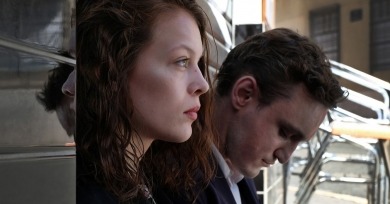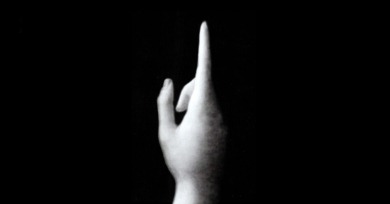Reviews
What suffers the most from this LSD-induced breakdown of social order is the sanctity of distinctly hetero-normative values: the innocence of the child, the heterosexual couple, the pregnant mother.
While there are many aspects binding Transit to Barbara and Phoenix (including an oppressive system, embodied here by the vagaries of international migration in wartime), Petzold is working in a slightly different register; it is at once more rigorously conceptual and less sociopolitically specific than its predecessors.
In demystifying the process of getting into one of the most prestigious film schools in the world, she exposes the ambivalence about race and class and the overall blindness to conversations surrounding diversity and inclusion that remain at the core of these institutions.
Sorry Angel, by design, chronicles a decade of death and uncertainty yet is more driven by the emotional specificity of queer love, laying bare its conundrums without any pretensions to universalization.
This feeling for that bygone world of freshwater creeks and tilled fields and as-yet-uncleared woods is one of the chief inducements recommending The Lincoln Cycle, consisting of ten two-reel episodes whose direction is credited to their star Benjamin Chapin.
La Isla de la Fantasia floods four times a year, and then re-emerges as before; the narrative of Los Silencios behaves in a similar manner, revealing visions or bits of information before submerging them time and again.
By primarily defining Glass in formal, thematic, and ethical opposition to the adaptations he believes have been widely mistaken for the pinnacle of comic book form, Shyamalan here is unable to loosely interpret and interpolate the genre as he did in Unbreakable.
Clips culled from cinema and reportage flicker and transform before our eyes in a barrage of changing aspect ratios, contrast levels, and color saturation intensities; gnomic pronouncements and aphorisms (some translated, others not) boom and crackle over a detailed 7.1 sound mix.
Faced with promoting such a difficult-to-pitch property, Universal decided instead to cut its losses, keeping the movie hidden from press until its unceremonious arrival in theaters was imminent, so that now it becomes a story only on the basis of its spectacular box-office failure, a foregone conclusion.
Its beauty, innovation, and virtuosity aside, The Other Side of the Wind is not a neat epitaph because it contains more cynicism than Welles himself exhibited and more defensiveness than he should have ever needed to.
I have never really registered the supposed mastery of the post-Unforgiven Eastwood movies, and found The Mule alternately flat and slapdash, more carefully shaped conceptually than on the level of composition or editing.
If the identities of Jack and von Trier were previously still separable, this hellish crucible forges them together irrevocably. Whatever else one might say about von Trier, this is filmmaking imbued with terrifying clarity regarding its (self-)destructive nature.
Life exquisitely pours forth out of If Beale Street Could Talk, a film that seems to move on unceasing currents of emotion, of love and pain, of big heartaches and small joys, of revelations and disillusionments.
This complex character study is centered on Esmail (Ardalan Esmaili), an Iranian in Denmark who faces deportation unless he can settle down with a Danish partner . . . Through his struggles, the film explores the performative nature of assimilation and reminds us of the steep costs of trying to forge a new life and identity in a foreign land.













